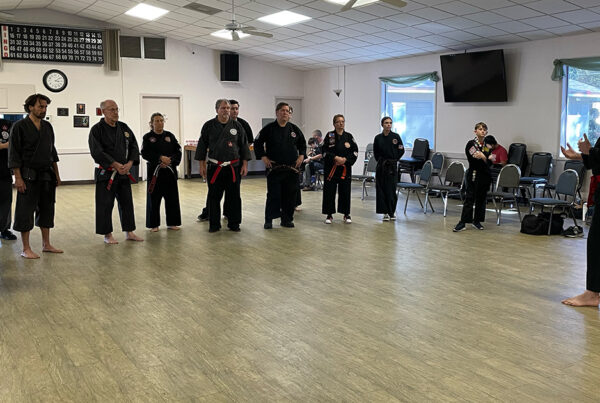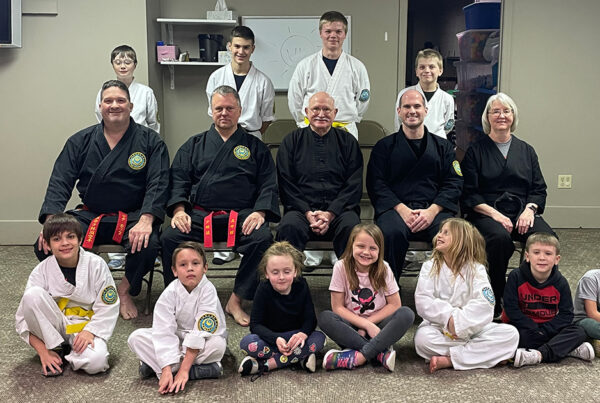Tai chi is very likely the most well-researched martial art.
This mind-body exercise has many benefits.
My go-to resource for those is the National Center for Complementary and Integrative Health, which touts tai chi’s ability to help prevent falls, reduce pain, and ease cancer symptoms.
However, that article was last reviewed in March 2022, more than a year before this post’s publication.
So much more research has emerged about tai chi that I wanted to share what I’ve found.
When I searched Google Scholar for the term “tai chi” in 2023, I found studies that support tai chi practice for those with hypertension, type 2 diabetes, and chronic diseases, as well as those rehabbing from strokes
Please note: I’ve trained in tai chi chuan for more than a decade, but I am not a doctor or scientist, so consult with a trained medical professional.
Tai Chi Benefits People Rehabilitating Following A Stroke
Strokes can affect fine motor skills as a result of weakness in people’s shoulders, wrists, and hands.
A May 2023 study published in Complementary Therapies in Clinical Practice looked to see whether tai chi could help stroke survivors undergoing rehabilitation improve balance and upper-limb function.
The study looked specifically at tai chi yunshou, often called “cloud hands” or “wave hands like clouds.”
Their rationale was that cloud hands may be safer for stroke survivors than the longer, more complicated tai chi set of 24 postures and movements.
“Tai Chi Yunshou (TCY), the fundamental form of Tai Chi, mainly consists of simple upper-limb spiral movements,” the researchers write. “The shoulders remain relaxed, and the head, trunk, and pelvis rotate as a unit slightly around the spine during TCY exercises, making it easier for the exerciser to maintain balance.”
Researchers analyzed seven studies conducted between 2020 and 2022 with more than 500 participants.
They found that cloud hands may provide some benefits as a complement to more traditional rehab, but the use of tai chi for stroke survivors can’t be proven in a clinical setting.
Tai Chi Is Likely Safe For People With Chronic Diseases and Conditions, Including Arthritis
Studies continue to indicate the safety of tai chi chuan for those with chronic conditions, including multiple forms of arthritis.
Bibi et al., 2023, sum it up perfectly in the April 26, 2023, Research Square:
“Tai Chi,” they write, “is safe, improves joint mobility function, posture control, hemodynamic balance, and stabilizes body balance in the elderly with musculoskeletal conditions.”
Specifically, two new studies suggest promise in people with both rheumatoid arthritis and osteoarthritis.
Those with rheumatoid arthritis can likely continue to practice tai chi, according to research published in January 2023.
Although, they also note that tai chi doesn’t appear to improve the following with RA patients:
- The time it takes to walk 50 feet,
- Joint tenderness,
- Number of swollen joints,
- Number of tender joints,
- Hand-grip strength, and
- Pain.
Meanwhile, mind-body exercises like qigong, tai chi, and yoga “may improve physical function in osteoarthritis,” according to de-la-Casa-Almeida et al., 2023.
They even suggest that tai chi, specifically, could “improve arthritis self-efficacy in knee osteoarthritis.”
Tai Chi Can Improve Blood Pressure With Consistent Practice
Another benefit of tai chi is its apparent ability to affect blood pressure positively.
“Tai Chi, a bright star in traditional Chinese arts, relaxes both mind and body and has been shown to relax blood vessels and lower blood pressure,” write Yin Y. et al., 2023.
Their meta-analysis suggested that those who practiced tai chi could see a blood pressure reduction with:
- 12 weeks of consistent tai chi practice, and
- Practicing tai chi five days a week, and
- Practice tai chi for less than 60 minutes per day.
Those with both hypertension and hyperlipidemia were found to have more success by exercising less than five days per week.
Tai Chi Appears To Support Positive Brain Activity In Those With Type 2 Diabetes
The latest research among people aged 60 and older with type 2 diabetes suggests that tai chi chuan could be more beneficial for health than walking.
Mild cognitive impairment is often found in people with type 2 diabetes, which often leads to dementia.
Researchers suggest this ancient mind-body exercise has the following benefits over merely a brisk walk because:
- It incorporates learning and memorization, movement, and breathing.
- Its meditative and relaxing nature could reduce cortisol levels, lowering stress, anxiety, and depression and slowing cognitive decline as a result.
- It builds strength and balance, reducing the risk of falling.
“The findings support a long-term benefit,” say Chen et al., in the April 6, 2023 edition of Physical Medicine and Rehabilitation, “suggesting the potential clinical use of tai chi chuan as an exercise intervention to improve cognitive function for older adults with (type 2 diabetes) and (mild cognitive impairment).”
Tai Chi May Improve Attention Span In Young Adults
More research supports positive brain activity in tai chi practitioners, according to a March 2023 Cerebral Cortex report.
But, unlike the study above, these benefits aren’t just for those ages 60 and older.
Young adults who practiced tai chi were found to have improved reaction times after just three 20-minute practice sessions.
However, the short snippet of the research doesn’t indicate the specific ages of the study participants.
What Else Can Tai Chi Help With?
After learning more about the latest research in tai chi, I’m excited at the possibilities this martial art has for people of all ages and abilities.
If you experience any of these issues, consider discussing tai chi as a form of exercise or rehab with your doctor while referring to the research included here.

Photo by Sincerely Media on Unsplash

![What The Latest Research Says About Tai Chi [UPDATED 2023]](https://metamoramartialarts.com/wp-content/uploads/2023/05/wrist-check.jpg)


